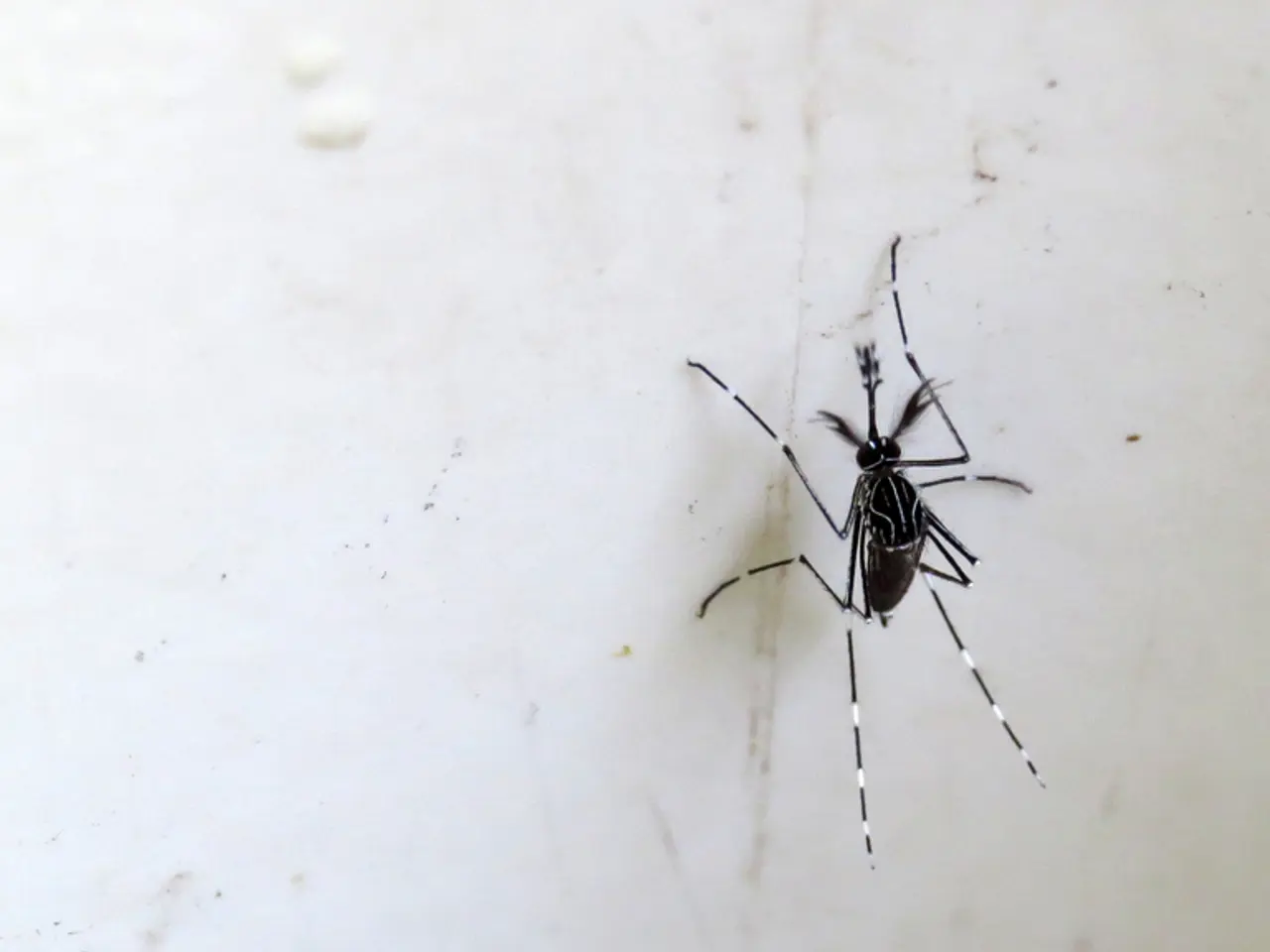Experts issues warning about a different pest whose bites are potentially more harmful than mosquitoes
Distinguishing Chigger Bites from Mosquito Bites: A Comprehensive Guide
Chigger bites and mosquito bites, although both common, differ significantly in appearance, location, and symptoms.
Appearance
Chigger bites typically appear as tiny, bright red, pimple-like bumps or speckled red rashes or welts. They are usually no bigger than the eye of a needle and often occur in groups. On the other hand, mosquito bites generally show up as single, raised red welts with a small puncture mark at the center.
Location
Chigger bites tend to be concentrated around areas where skin is pinched or tight against clothing, such as the beltline, sock line, waistband, ankles, groin, and armpits. These are places where clothing restricts movement and where chiggers can attach easily. In contrast, mosquito bites usually occur on exposed skin such as the arms and legs.
Symptoms
Chigger bites cause intense itching, often becoming unbearable within 12–24 hours after the bite. The itching is caused by enzymes from the chigger that dissolve skin tissue, leading to a prolonged immune reaction that can last 10–14 days if untreated. Chigger bites do not involve actual blood sucking but tissue digestion. Mosquito bites, however, cause immediate itching and irritation from their saliva, which contains anticoagulants triggering an immune response, typically less severe and shorter lasting than chigger bites.
Prevention and Treatment
To prevent chigger bites, it's recommended to clear away leaf litter, grass cuttings, brush piles, and other organic debris, ensure lawns and garden areas have proper drainage, and avoid excessive watering. Applying insect repellents with DEET or picaridin on skin and treating mosquitoes with permethrin on clothing can deter chiggers. Reducing the height of tall grasses and weeds eliminates a significant portion of chigger's preferred habitat. Using natural scents like tea tree oil or eucalyptus blends can repel chiggers and mosquitoes. Regularly mowing the lawn and keeping the grass short can help prevent chiggers.
In case of a chigger bite, showering and washing thoroughly with soap and warm water after exposure to a chigger-infested area can eliminate larvae. Washing clothing in hot water and drying it on high heat can kill any remaining chiggers. Chigger bites can last for as long as 10-14 days if left untreated, and the itching can be alleviated with over-the-counter anti-itch creams or oral antihistamines.
In summary, chigger bites are smaller, clustered, and occur around tight clothing areas with more severe, longer-lasting itching due to tissue-dissolving enzymes, whereas mosquito bites are isolated, appear on exposed skin, and cause milder itching related to saliva anticoagulants.
- In the realm of health-and-wellness, understanding the differences between chigger bites and mosquito bites is crucial for maintaining a lifestyle that promotes outdoor living without discomfort.
- For those interested in fitness-and-exercise and spending more time outdoors, learning how to prevent chigger bites can significantly enhance their home-and-garden activities, such as gardening or mowing the lawn.
- Beyond the realm of science, the ability to identify and treat chigger bites can contribute to an individual's overall health-and-wellness and lifestyle, ensuring that outdoor living remains enjoyable and not overshadowed by the discomfort of bites.




